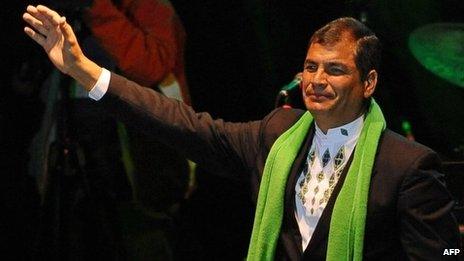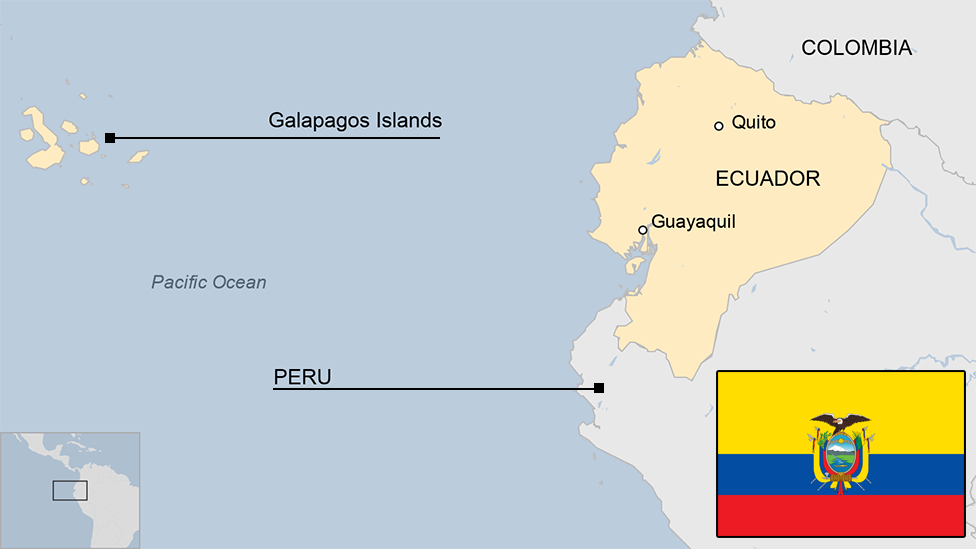Profile: Ecuador's Rafael Correa
- Published

Ecuadorean President Rafael Correa won an unprecedented third term in elections in February 2013.
He had already been in office for six years - no mean feat in a country that went through seven presidents in the 10 years before Mr Correa was elected.
Mr Correa, 49, came to power making much of the fact that he was not a traditional politician, and while in office he has sought to overhaul Ecuador's political structure and boost social spending.
He has also defaulted on foreign loans and clashed with Washington on several issues.
Mr Correa is regarded as the strongest leader in decades to be at Ecuador's helm, and his approval ratings have remained consistently above 50%.
Much of his popularity can be attributed to the government's public spending, including on roads, bridges, schools and hospitals.
Cash transfers have boosted the incomes of the poorest Ecuadoreans, and poverty levels have dropped from some 38% in 2006 to 29% today, according to the World Bank. , external
Mr Correa, a US-trained economist, announced in December 2008 that Ecuador was officially defaulting on billions of dollars of foreign debt that it considered "illegitimate".
Ecuador, an Opec member, is heavily dependent on oil exports. Mr Correa has pushed for new contracts with foreign oil companies operating in the country, increasing the share of income that goes to the state. Critics warned that such moves could deter foreign investors.
Other high-profile decisions Mr Correa has taken include his refusal to renew the lease on airbases used by US forces to mount anti-narcotics missions.
In February 2009, Ecuador expelled two US diplomats, accusing them of meddling in the country's internal affairs - charges Washington rejected.
Libel laws
Mr Correa came to office promising constitutional reform and in September 2008 some 65% of Ecuadoreans voted in a referendum to approve a new constitution that brought sweeping changes.
Mr Correa's opponents accused him of seeking to override Ecuador's democratic institutions and amass too much power for himself.
President Correa has described the private media as his "greatest enemy" and a major obstacle to implementing reforms.
He often uses his weekly radio and TV shows as a platform to attack them. He also uses a law that requires the media to carry government messages as a way of directly confronting his critics.
In 2011, three executives and a former columnist from an opposition newspaper, El Universo were sentenced to jail terms and a massive fine for libelling President Correa. He subsequently pardoned them, saying his aim had been to fight the "dictatorship of the media".
In 2012, Reporters Without Borders, external highlighted the closure of some dozen broadcasting outlets that were critical of the government.
President Correa came to wider international notice after offering asylum to Wikileaks founder Julian Assange, who remains at the Ecuadorean embassy in London.
Mr Correa was born in 1963 in the city of Guayaquil.
He studied economics in that city's Catholic University and then went on to get two masters degrees - one in the US and the other in Belgium - and, in 2001, a PhD.
The father of three speaks fluent English and French and can also speak the indigenous Quechua language, which he learnt while doing voluntary work.
Mr Correa describes himself as "left-wing - not from the Marxist left, but rather a Christian left".
- Published7 February 2018
- Published15 January 2024
